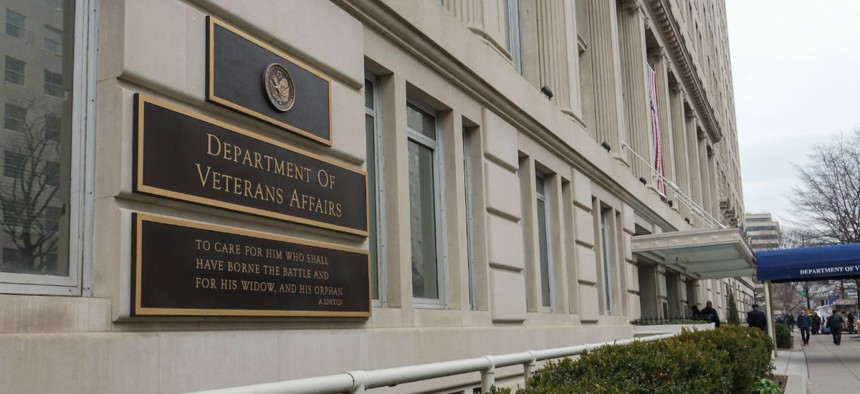
By bakdc / Shutterstock.com
VA Is Letting Senior Officials Off the Hook While Disproportionately Punishing Whistleblowers, Audit Finds
GAO identifies pervasive problems in VA's disciplinary processes.
The Veterans Affairs Department may have taken disciplinary action against hundreds of rank-and-file employees without justification, according to a new report, while in some cases failing to follow through on punishments for senior leaders after they were proposed.
Congress has for years worked to reform the disciplinary process at VA, with President Trump last year signing into law new procedures that expedite firings and make it easier for the department to prove its case. Those changes may not have taken into account internal failings within VA, the Government Accountability Office found, as it consistently fails to document evidence against employees and notify them of their rights.
Additionally, while last year’s Accountability and Whistleblower Protection Act sought to protect employees who attempted to shine a light on shortcomings within the agency, GAO found whistleblowers were far more likely to face adverse actions after reporting misconduct. One in 10 employees who brought issues before the Office of Special Counsel were slapped with discipline that same year, compared to one out of 100 VA employees overall.
VA failed to properly separate disciplinary investigations from the offices where alleged misconduct took place, GAO also reported. The auditors identified cases in which managers investigated allegations into their own impropriety.
The department maintains 12 systems that collect information on disciplinary actions throughout VA, and GAO found flaws in all of them. In one system, for example, VA did not indicate in its records the date of the punishment or the infraction. The department had no accounting for disciplinary actions that did not affect pay or leave and took an inconsistent approach in documenting how it adjudicated misconduct allegations. GAO estimated there were 3,600 cases between October 2009 and May 2015 in which VA did not document whether it notified employees of their rights, such as their right to an attorney.
“The absence of files and associated documentation suggests that individuals may not have always received fair and reasonable due process as allegations of misconduct were adjudicated,” GAO said. It added that without collecting reliable data, VA’s “decision making on misconduct [is] impaired.”
VA failed to apply consistent standards to its investigations of senior officials, GAO found. In five of 17 cases the auditors reviewed, the supervisors failed to receive any discipline at all despite recommended punishments. The department frequently failed to supply the inspector general with documents to support the decisions it took regarding discipline of senior officials.
GAO made 16 recommendations to VA, including guidance to standardize the collection of reliable misconduct and disciplinary-action data and directing the newly formed Office of Accountability and Whistleblower Protection to review evidence in cases involving senior officials to ensure VA takes the necessary steps. OAWP should also provide guidance to ensure recommended discipline against senior officials is carried out and develop clearer policies to protect whistleblowers from retaliation. Such guidance should ensure investigations are conducted by individuals independent of the allegations, the watchdog recommended.
Lawmakers faulted OAWP for its lack of written guidance and procedures in a hearing this week. VA officials told GAO they expect OAWP to issue more concrete guidance by Oct. 1.
“With high-quality information that is accurate and comprehensive,” GAO said, “VA management would be better positioned to make knowledgeable decisions regarding the extent of misconduct occurring and how it was addressed, departmentwide.”
Jacquelyn Hayes-Byrd, VA’s chief of staff, told GAO that department officials generally agreed with the report's findings and largely vowed to implement the recommendations.







